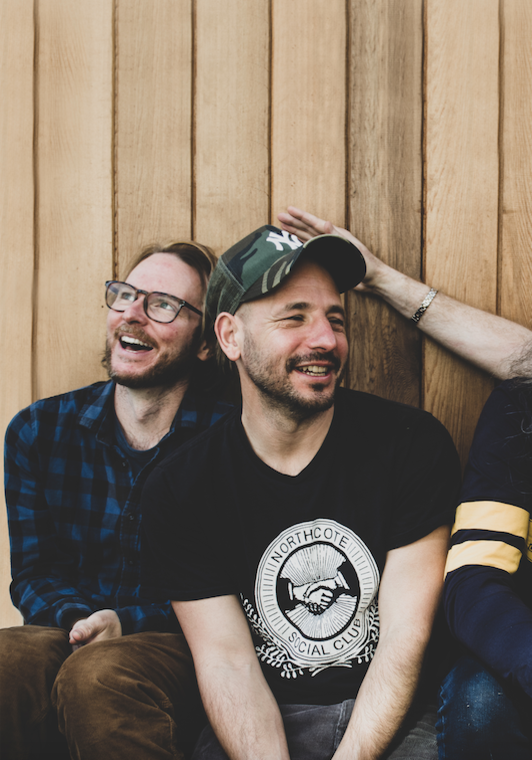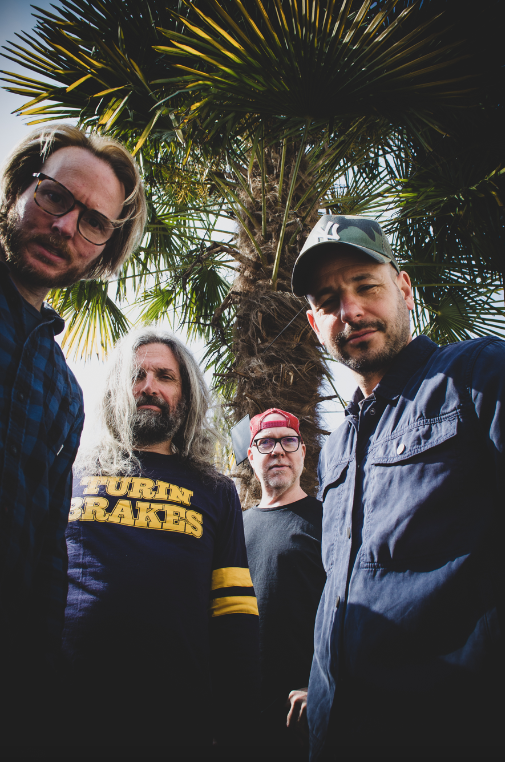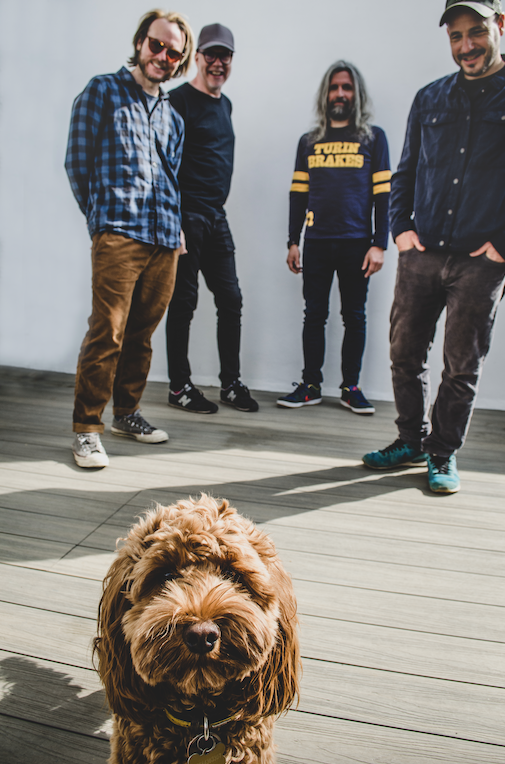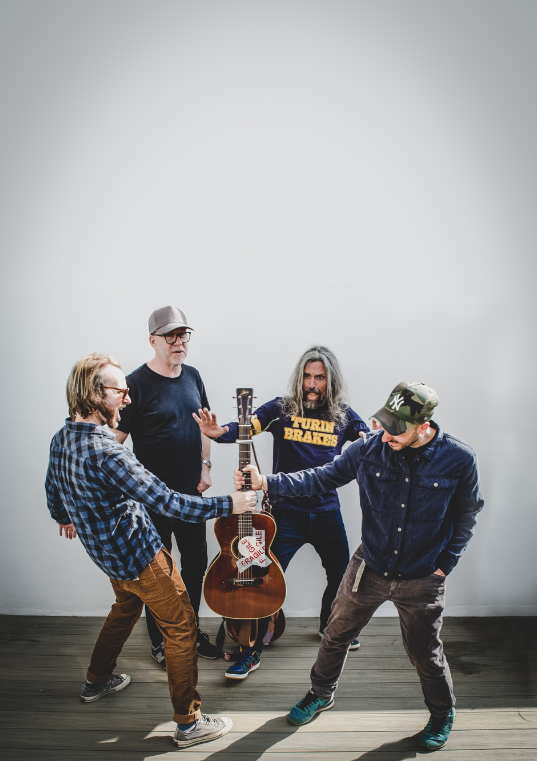After breakthrough and unexpected TV-propelled success in the early 2000s, UK band Turin Brakes are back with their ninth studio album. The band’s lead singer, Olly Knights insists they’ve been winging it from the start…
Knights is in a caravan in the middle of a field in the UK’s Essex coast, and he’s breaking up. Think solar power, dodgy wifi – and intermittent phone signal. Four call backs later, and he’s found a spot outside where his phone just about works.
“It's lovely, but it's super limited,” he sighs, adjusting his position slightly to make sure the signal holds this time. “But I actually love it… until of course if I suddenly have to do any promo. Then it's a bit useless.”
He’s battling against bad phone signal today to talk about Turin Brakes’ ninth studio album, Wide-Eyed Nowhere, summer festivals and the band’s current UK tour. Formed by childhood friends Knights and Gale Paridjanian in the late ‘90s after initially bonding over Chuck Berry and the Johnny B. Goode scene from Back To The Future, Turin Brakes (“it was one of those curious names that hopefully pulls people in, rather than puts them off”) is a result of one of the duo’s experimental tapes being listened to by chance by a friend, who just so happened to be starting a small record label.
“And all without us knowing,” he recalls. “He got in contact and said, ‘Do you guys want to put out an EP?’ And we were like, ‘Okay!’ But we truly hadn't considered the idea of being a band, so we quickly made up a name and pretended that it had been the plan all along, and we just haven't stopped. It's been 23 years and that is literally all we've done. We’ve been winging it totally,” he laughs.






